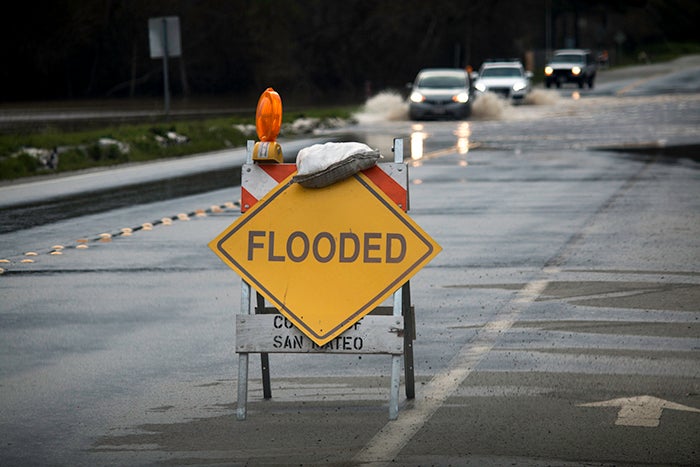Update
Speaker presentations from the June 13th event can be accessed by clicking here:
Daniel Henstra - Flood Risk Governance in Canada (PDF)
Jen Graham - Building Flood Resilience in Nova Scotia (PDF)
Shannon Miedema - Flood Risk Management in Halifax Regional Municipality (PDF)
Craig Stewart - Financial Risk of Flood (PDF)
Hope Parnham - Impacts of Shoreline Structures on the Coastal Landscape (PDF)
Dan Sandink - Mitigating Urban/Basement Flood Risk: Household-scale Considerations (PDF)
Jason Thistlethwaite - Policy Instruments for Managing Flood Risk (PDF)
This workshop will be held on Wednesday June 13th, 2018 at the Halifax Convention Centre. Workshop participants will be served lunch, coffee and light refreshments.
Purpose of event

Coastal regions in Canada are vulnerable to the impacts of climate change (PDF), such as rising sea levels, changes to the intensity of storm surges and eroding coastlines.
Over the years, governments have made efforts to identify opportunities for adapting to climate change. For example, municipalities in the Province of Nova Scotia recently completed a Municipal Climate Change Action Plan. Adaptation responses can take many forms, whether they are structural investments (e.g., building sea walls) or non-structural measures (e.g., land use policy changes that account for sea level rise).
Managing flood risks in a changing climate is complex and consists of a portfolio of instruments that transcend government intervention. Insurers, banks, real estate agents, property developers, non-profit organizations and civil society also have a role to play in reducing social vulnerabilities to extreme weather and climate change
This workshop will bring experts and professionals across sectors and disciplines to discuss measures for reducing and managing flood risks in a changing climate. This workshop specifically focuses on issues that are relevant to Nova Scotia and Atlantic Canada. The topics discussed in the workshop will inform a policy brief directed at the provincial and federal governments focused on what type of actions should be taken to improve flood risk management in Nova Scotia.
*Participants of this workshop will be asked to sign a Consent Form at the event for the use of this workshop's results for research purposes (e.g., publications). You can read the Information and Consent Form ahead of time.*
Reserve a spot
*The workshop registration is now closed. Thank you for your interest*
To attend this event, please fill this form to reserve a spot. You will receive confirmation within 1 to 2 business days. Limited space is available.
Workshop agenda*
| 8:30am |
Registration |
| 9:00am |
Welcome addressJason Thistlethwaite, Lead, Canadian Coastal Resilience Forum |
| 9:10am |
Flood risk in Atlantic CanadaPresenters will provide an overview of flood impacts in Atlantic Canada and emerging policy responses.
Moderator: Shawna Peddle, Director, Partners for Action |
| 10:15am |
Network break |
| 10:45am |
Roundtable: Professional perspectives on coastal flood risk reduction and climate changePanelists will discuss how coastal flood risk reduction and climate change is incorporated in their professional duties and responsibilities.
Moderator: Daniel Henstra, Professor, Department of Political Science, University of Waterloo |
| 11:45am |
Lunch |
| 12:45pm |
Measures for managing flood riskPresenters will discuss structural and non-structural measures for reducing and managing flood risk that can be implemented by governments and households.
Moderator: Andrea Minano, Research Manager, Flood Policy Research Group, University of Waterloo |
| 1:40pm |
Coffee break |
| 2pm |
Group discussion: Non-structural measures for reducing and managing flood risksWorkshop participants will be presented with specific non-structural measures for reducing and managing flood risk and will discuss the benefits and drawbacks of these measures in the context of Nova Scotia. |
| 3pm |
Closing remarksJason Thistlethwaite, Lead, Canadian Coastal Resilience Forum |
*Updated on May 10 2018